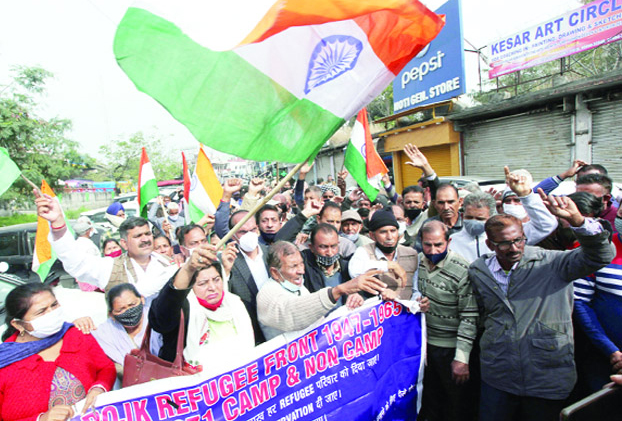Dr Subhash Chander
As Jammu and Kashmir prepares to enter a new chapter of political reformation, one community that has consistently been left out of the narrative is the POJK (Pakistan Occupied Jammu and Kashmir) displaced people. This community, consisting of nearly 6 lakh individuals residing across various constituencies of Jammu and Kashmir, has long sought adequate representation in legislative bodies.
Among them, approximately 37,000 people reside in R.S. Pura South and 13,000 in Suchetgarh constituencies alone. Despite this substantial demographic presence, their voices remain unheard in policy-making circles. The political empowerment of the POJK displaced people, who were uprooted during the turmoil of Partition in 1947, is an urgent need of the hour. The question now is whether the existing political frameworks can accommodate and address the demands of this long-neglected segment of society.
The recent JKNC-Congress alliance has raised new hopes for many marginalized communities, including the POJK displaced people. The National Conference (NC), under the leadership of Omar Abdullah, has historically advocated for the inclusion of all sections of society. As a party with deep roots in Jammu and Kashmir, it is in a unique position to bring about transformative changes in the state’s political landscape. The alliance’s pledge for inclusive governance has rekindled aspirations among the POJK displaced people, who have waited for decades for meaningful representation.
Despite the sacrifices and contributions made by the POJK displaced community in strengthening the socio-economic fabric of the region, they have largely remained outside the political mainstream. This exclusion has only deepened their grievances, making it imperative to consider measures that ensure their adequate representation.
The upcoming Rajya Sabha elections present a golden opportunity for the JKNC-Congress alliance to bridge this historical gap by nominating a representative from the POJK displaced community. Such a decision would be a testament to the alliance’s commitment to justice and equity.
Political representation for the POJK displaced people is not merely a question of numbers; it is about providing a voice to those who have been voiceless for decades. It is about ensuring that their issues-ranging from rehabilitation to property rights-are addressed within the legislative framework. A reserved seat in the Rajya Sabha for the community would be a step in the right direction, one that recognizes their unique challenges and aspirations.
For too long, the community has been seen as a mere vote bank rather than a stakeholder in governance. It is high time to change this perception by actively involving them in decision-making processes. Such an initiative would not only uplift the POJK displaced people but would also contribute to the stability and development of Jammu and Kashmir as a whole.
The National Conference and Congress alliance has already showcased its dedication to the principles of social justice and inclusive development. By championing the cause of the POJK displaced people, the alliance can demonstrate its resolve to bring marginalized communities into the political fold. A Rajya Sabha nomination for a representative from the community would symbolize a commitment to political inclusivity and empowerment.
The political empowerment of the POJK displaced people is not just a matter of providing adequate representation; it is a reaffirmation of their place within the democratic fabric of Jammu and Kashmir. The JKNC-Congress alliance, with its progressive outlook and promise of equitable development, is well-positioned to lead this change. By securing representation for the POJK displaced community in the forthcoming Rajya Sabha elections, the alliance can take a decisive step towards fostering a more balanced and representative political system.
“The time has come for the POJK displaced people to have a seat at the table, not just a voice in the crowd.”
(The author is Associate Professor of English University of Jammu)
Trending Now
E-Paper


